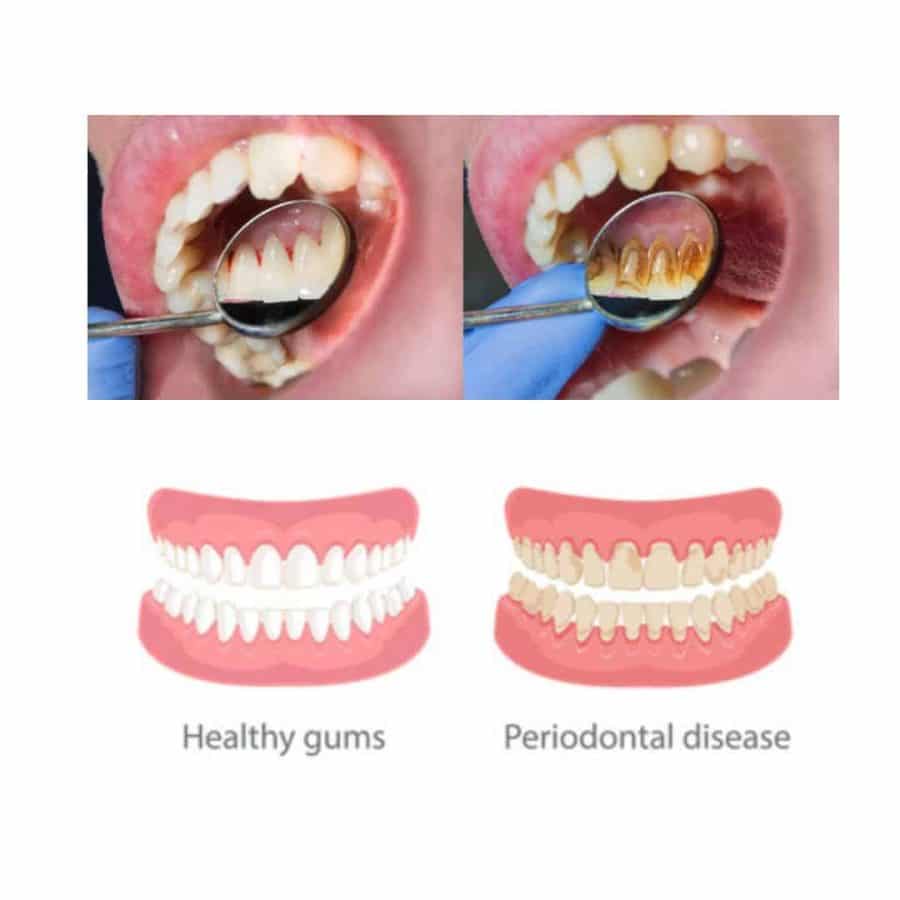Recognising the onset of periodontal disease is vital to ensure your teeth and gums remain healthy for as long as possible. The name may sound daunting and you may be more familiar with the term gingivitis, which, if left untreated, will find you sadly all too soon fully aware of periodontal disease and its damage. While there are periodontal treatments that can help, early intervention is key to ensuring further progression is halted before it goes too far. If you experience any symptoms then we recommend going to a professional immediately. We recommend this one if you need a periodontist in Ballwin.
Knowing the signs of periodontal disease
There are many early warnings that not all is right in your mouth to indicate the onset of gingivitis and periodontal disease, which you certainly should not ignore.
These can include
· Tender, bleeding, red or swollen gums
· Bad taste in your mouth or bad breath
· Sensitive teeth
· Painful chewing or loose teeth
· Gums that are receding away from your teeth
· Change in the way your teeth or partial dentures bite.
If you do not care for your teeth and gums with proper oral hygiene and cleaning, you may face more costly and invasive procedures as the disease progresses to the more severe periodontitis stages. Good oral hygiene and regular dental visits can help you avoid tooth loss if caught early and treatments and procedures can reverse some effects.
What is periodontal disease?
Periodontal disease begins due to infections and inflammation of both gums and bones that support your teeth. Early-stage you will see signs of gums bleeding when cleaning teeth and becoming swollen or red. Gums recede and teeth become loose as the disease progresses. Eventually, if untreated, teeth fall out as the bone and gum supporting them are lost. It is essential to listen to the advice of your dentist as early identification and treatment will help slow the development of the most severe form, known as periodontitis and may even prevent it altogether.
How common is it?
The National Institute for Health and Care Excellence (NICE) suggests that 50-90% of the UK and US population have some degree of gingivitis. Almost half of adults have reached a degree of periodontitis deemed as irreversible. Around 50% of adults over the age of 30 show some form of the disease, increasing to over 70% at 65+.
Periodontal disease is more prevalent in men than women, current smokers and those in disadvantaged areas are also known to have more significant instances of gum disease.
Higher Risk Factors
· Smoking
· Family history
· Poor oral hygiene or defective fillings/ill-fitting bridges
· Diabetes or underlying immune-deficiencies
· Medications that cause dry mouths
· Female hormone changes or the use of oral contraception
Causes
Bacteria that are not regularly removed by brushing or flossing causes inflammation around the tooth. Bacteria will cause plaque which hardens to tartar. Tartar builds up and will make teeth harder to clean and it can spread below the gum line, which cannot be removed with conventional brushing at home. A dental health professional will be able to remove tartar build-up and stop the periodontal process. However, ensuring you regularly brush your teeth and maintain adequate oral hygiene between visits is the only way to work with your dentist to ensure you are caring for your teeth and mouth in the best possible way.
Treatment and Prevention
The first thing to note is the sooner you begin good oral hygiene practices, the less you will be at risk. There are periodontal treatments that can help you whatever stage of the disease you’re in, however.
Gingivitis – if caught and treated early, good oral hygiene with flossing and brushing alongside professional cleaning regularly can stop its progression.
Periodontal disease – can also be treated successfully. However, more extensive treatments may be required, including:
· Deep cleaning of the tooth – subgingival debridement to remove tartar and plaque from below the gum surface and around the teeth
· Gum surgery
· Cosmetic soft tissue manipulation or regeneration
It is essential to attend regular dental checkups and follow the oral hygiene advice given. You must be proactive to keep your teeth and gums healthy to avoid removal or dentures for as long as possible.





